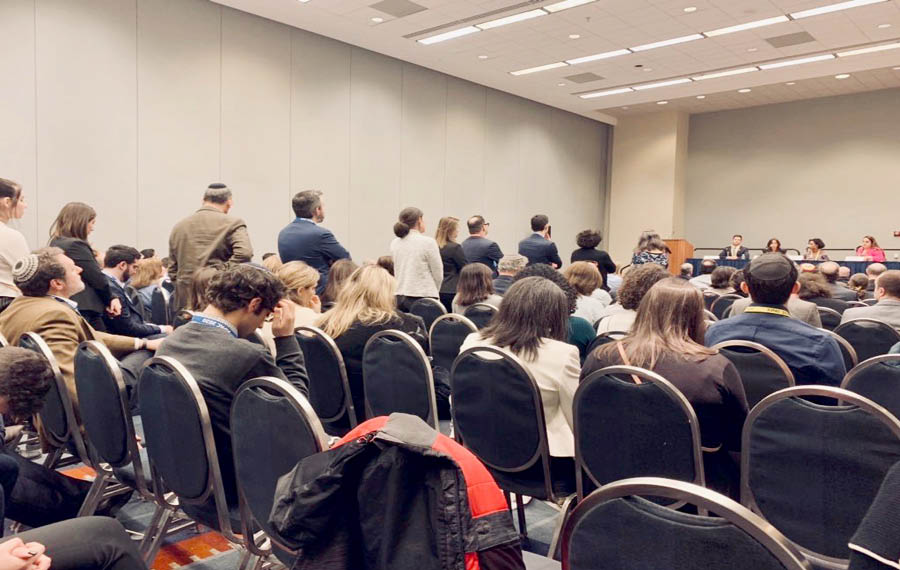
At the America Israel Policy Affairs Conference’s (AIPAC) Intersectionality: Standing Up for Our Values and Ourselves panel, the line for the audience Q&A was long.
On it are the progressives at the conference. And they have questions.
Being progressive and pro-Israel is complicated.
“The right is telling us you can’t be a progressive and a Zionist and some people on the far-left are telling us you can’t be a progressive and a Zionist,” said Rami Hod, executive director of the Berl Katznelson Center, at the Progressive Activism in Israel panel. “What brings me here today, although listening to the Israeli ambassador to the U.N. is very, very challenging — is that we have our narrative, the progressive Zionist narrative, to maintain.”
AIPAC panels about progressive causes were copious. They dissected striving for a more just Israel (Improving Life in Gaza: Israeli-Palestinian Cooperation, Israel and the Climate Crisis, Promoting Palestinian Prosperity, Women of Start-Up Nation), inclusive pro-Israel activism (Advocating for LGBTQ Equality and the U.S.-Israel Partnership, Israel and Our Progressive Values, Pro-Israel Activism and Progressive Zionism, Zionism and Feminism), and marginalized identities (African American, LGBTQ, Latino, Kurds, Israeli Minorities.)
There was a recurring question in the breakout sessions: What should a Zionist do when a social justice cause they support is aligned with anti-Israel groups and platforms?
At the African American Leaders panel, speakers were asked about how Israel has become a wedge issue between black and Jewish communities, given that Black Lives Matter endorsed the boycott, divestment and sanctions movement in 2016 and how the Movement for Black Lives demanded the United States cut military aid to Israel.
“I think you can support issues that support African Americans without supporting that particular movement,” replied Mario Bailey, senior adviser for Converge Government Affairs. “If it’s injustice anywhere, you can’t just say, ‘OK, because this particular group doesn’t support our causes, they’re reflective of all African Americans.’ ”
Larry Scott Blackmon, a former New York City Council candidate who served in the administrations of Mayor Bill de Blasio and Michael Bloomberg, agreed with Bailey.
“Not one organization speaks for all people of color. There are so many. I started off today by saying I was probably in 10 of them. Because that’s one extremist view from a certain community does not necessarily mean that it speaks for everyone,” Blackmon said. “You have people of color who are here for this conference — who are elected officials in their own right — whose stories are not being told, who are not aligned. But every day, they are working to build a bridge to fix water issues, to make their communities better, and reach out to different constituency groups. Help us help you by telling that story.”
The sentiment of being misrepresented by fringe voices was shared by AIPAC’s progressive Jews.
One audience member said, “There seem to be a lot of left-wing Jews joining progressive anti-Semitic organizations like Jewish Voice for Peace [JVP] (and other ones that I won’t mention right now) and are essentially using their Jewish heritage as a shield against legitimate accusations of anti-Semitism. What is your strategy for dealing with people of Jewish heritage — including major presidential candidates — who are using their status to shield what I think are blatantly anti-Semitic organizations that purport to be Jewish, but really are not?”
There was a recurring question in the progressive breakout sessions at AIPAC: What should a Zionist do when a social justice cause they support is aligned with anti-Israel groups and platforms?
The group he wouldn’t name is IfNotNow, the leftist Jewish crowd that launched a campaign to intimidate liberals from attending the event. “Progressives don’t let progressives go to AIPAC,” IfNotNow graphics read, which were widely distributed online, and even outside the conference.
“From European neo-Nazis and genocide deniers to leaders of Israel’s most violent far-right movements and political parties — some of the world’s worst bigots were on AIPAC’s stage this year,” the group wrote in an email titled “#SkipAIPAC Recap. We’re winning — and they know it.” “What’s clear from this year’s conference: AIPAC is losing the battle for the soul of the Democratic Party, and replacing their bipartisanship with bigotry.”
At the Intersectionality panel, the group was a source of such discomfort that both the speakers and audience members refused to utter its name. “These groups that shall not be named, they’re like Voldemort [from the “Harry Potter” books]. They’re trying to define the relationship with Israel based on what they see as Israeli war crimes,” said A Wider Bridge Executive Director Tyler Gregory.
“There are fringe elements of the Jewish community such as JVP and there are other groups who claim to speak on behalf of American Jews as anti-Zionists but they simply don’t,” responded Amanda Berman, the founder of Zioness, which supports progressive, pro-Israel activists. “When we’re coming together in a big tent of the progressive Jewish left, which is also deeply committed to Zionism because it is consistent with our progressive values and progressive identity, we can silence those people … we can marginalize them.”
Dr. Lauren B. Strauss, the director of the Jewish Studies Program and American University, audibly complained during the question, particularly its swipe at the Jewishness of Bernie Sanders, who has joined IfNotNow’s attacks on AIPAC. “They’re Jewish even if they don’t agree with you,” she huffed.
“It’s really facile and shows a lack of subtlety to accuse people running for president – obviously, he was referring to Bernie Sanders, who I don’t support – of being anti-Semitic because they have been critical of Israel,” Strauss told The Jewish Journal. “It’s really unhelpful and damaging to just reduce people to labels like anti-Semite or bigot. I had someone asked me how I could speak here at a conference on a platform with so many bigots. I know who they are referring to. There are a few people who have spoken to the conference who I am very much against.”
Strauss, who is a speaker at the conference, stands by her decision to attend.
“If there is a big tent and you disagree with parts of that tent, it’s still okay to show up, and all the more reason to show up and educate people about your own point of view,” she said. “Mine happens to be progressive.”
Strauss is not the only AIPAC goer who took issue with some of their speakers or tactics.
After the African American Leadership panel, New Jersey attorney Calvin W. Souder told the Journal that he skipped that morning’s main session. He refused to hear Vice President Mike Pence’s speech, even though a speaker who preceded him, Sen. Cory Booker (D-N.J.), “is one of my best friends.” During Pence’s delivery, many in the audience walked out.
While speaking at Progressive Activism in Israel, Rabbi Gilad Kariv, who is the executive director of the Israel Movement for Reform and Progressive Judaism, took issue with the makeup of his own panel.
“I feel not totally comfortable being in a panel that talks about progressive activism in Israel without a person who represents the non-Jewish community,” Kariv noted, suggesting that they do better next year.
Meanwhile, Hen Mazzig, a Journal columnist and senior fellow at the Tel Aviv Institute, politely corrected a moderator in an identity panel when she said that Sephardic Jews and Mizrahim were the same.
“It’s so Eurocentric that we even call Mizrahim ‘Sephardic.’ My family was in Iraq when it was Babylon. They didn’t come from Spain,” Mazzig explained. “There’s Mizrahi. There’s Sephardic. In the past, we used to be lumped into one category — Sephardic or Ashkenazi, but it’s more diverse than that. My work is to expand the conversation and show there is more than just one form of Jewish identity.”
While AIPAC’s American speakers advocated showing up to progressive spaces as unapologetic Zionists, Israeli activists advocated for addressing Israel’s shortcomings.
“We can’t bring people to like Israel better, connect better with Israelis, and acknowledge the self-determination of the Jewish people and to think Zionism is not racism if we deny the occupation,” Hold said. “If we deny the settlements, if we say, you know, ‘You should support Israel because Israel has invented the cherry tomato.’ This is the reason I like to come here, why I like to speak at AIPAC because no one tells me what I can say. I have a space here. I can talk about my views with friends who are progressives in AIPAC.”
Berman, while advising the crowd to show up for social justice regardless of the movement’s views on Israel, verbalized why many progressives came to the conference.
“We are afraid to engage and the problem is getting worse because we are ceding the spaces to the bigots, afraid to stand up to them,” she said. “Don’t let anyone tell you what you can’t be.”
Ariel Sobel is a TEDx talker, award-winning filmmaker, and the winner of the 2019 Bluecat Screenplay Competition.
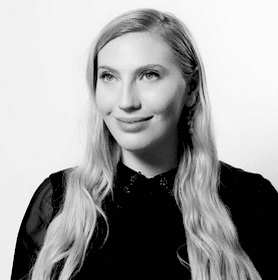







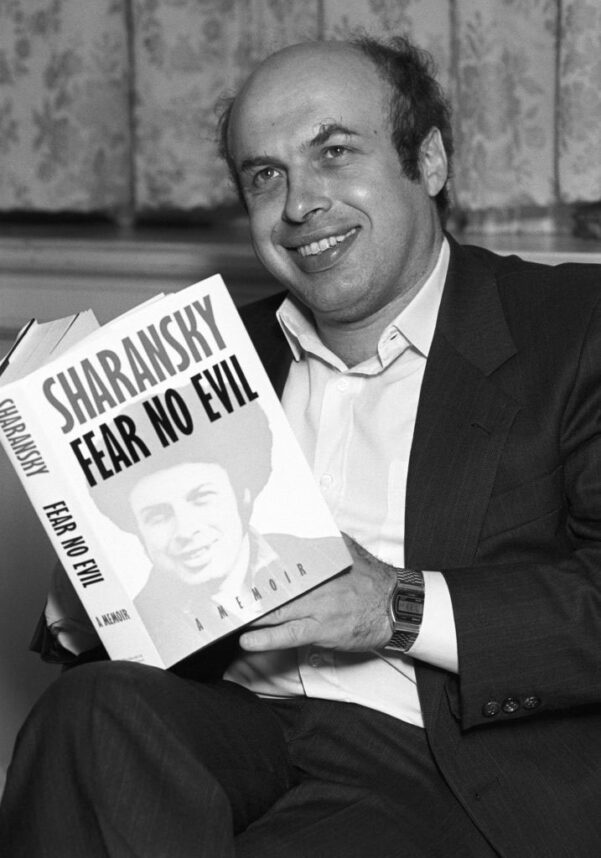



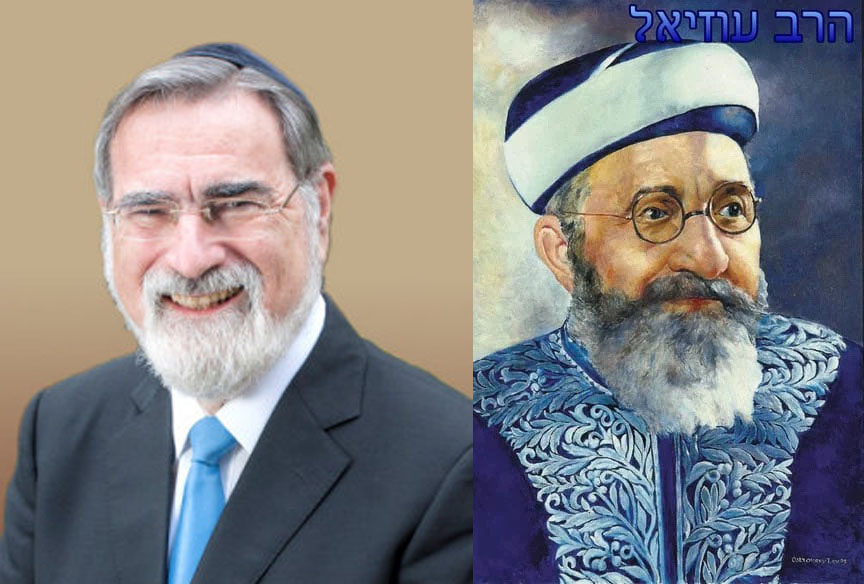
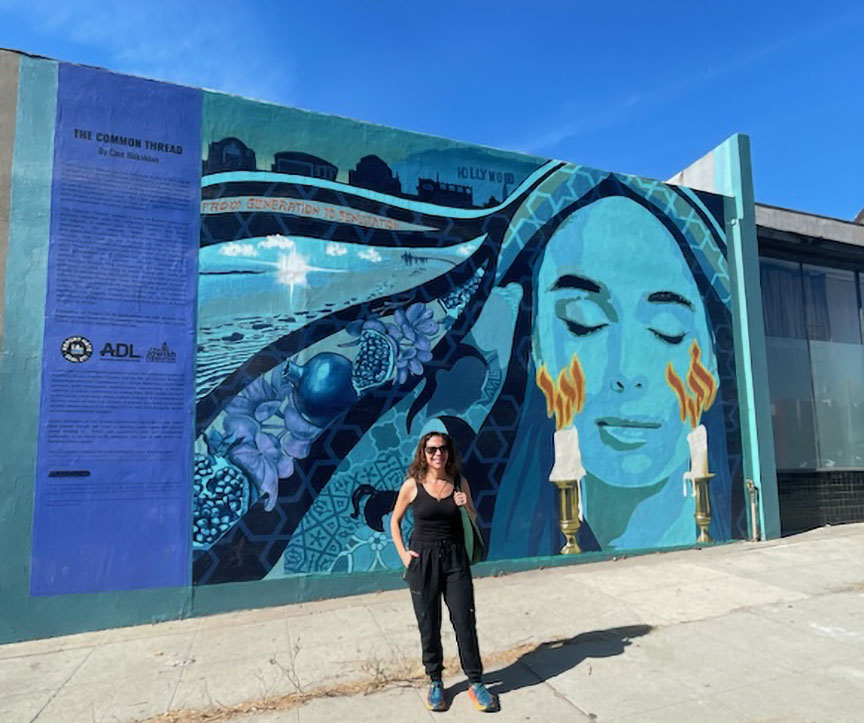
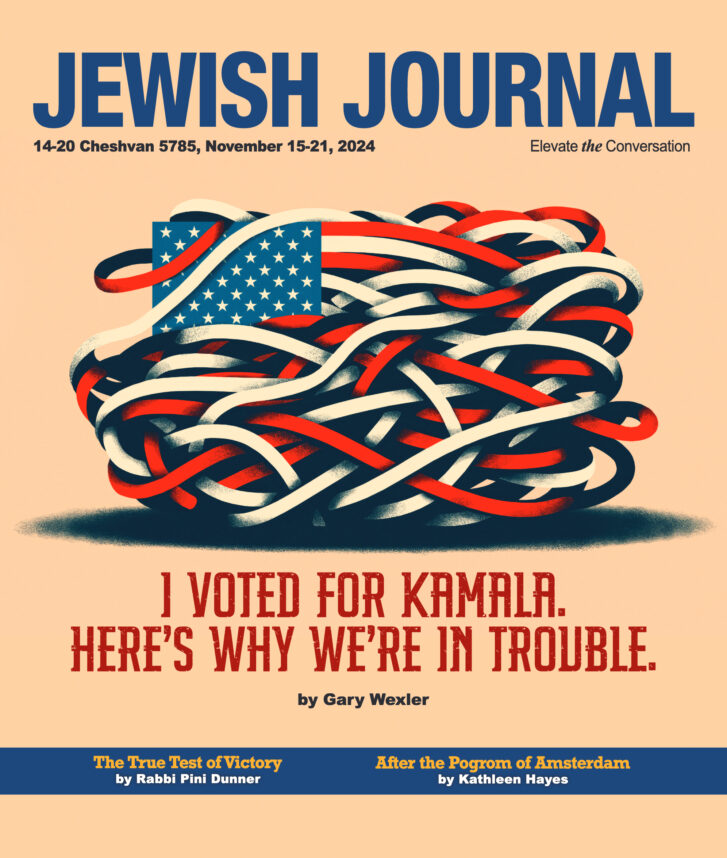
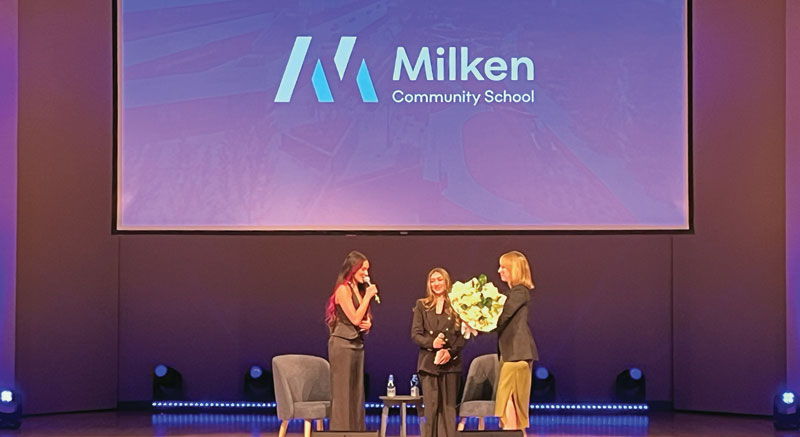
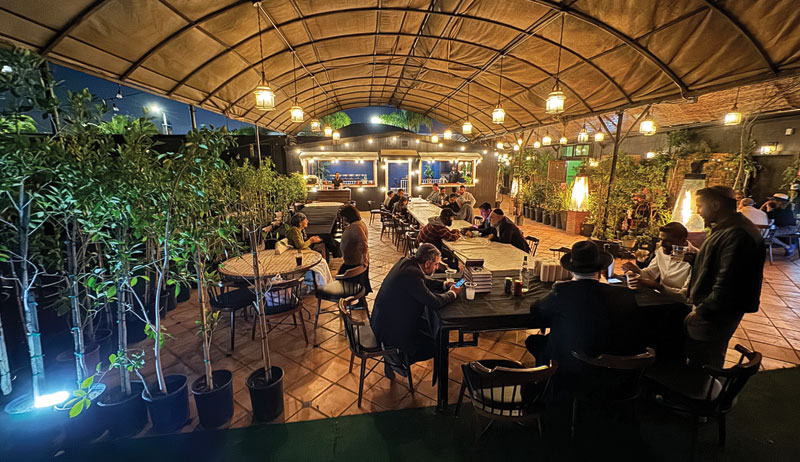





 More news and opinions than at a Shabbat dinner, right in your inbox.
More news and opinions than at a Shabbat dinner, right in your inbox.